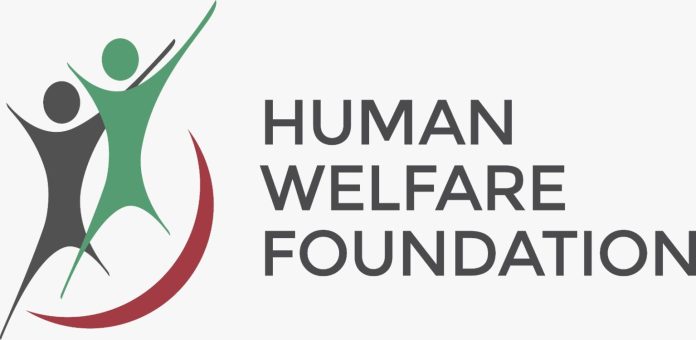New Delhi: The Delhi-based Human Welfare Foundation (HWF) is making remarkable strides in transforming lives through its flagship initiative, Vision 2026. This long-term development program has significantly impacted India’s marginalized communities, operating across 339 districts in 24 states with over 500 projects, benefiting more than 1.3 million individuals. By focusing on key areas such as education, healthcare, poverty alleviation, and interest-free microfinance, Vision 2026 is paving the way for sustainable development and social upliftment.
Milestones and Impact
In its recently released annual report, Vision 2026 highlighted its substantial expansion and nationwide influence. The initiative has been instrumental in establishing educational institutions in remote areas, extending financial support through micro-loans, and providing crucial healthcare services, among other efforts.
Launched in 2005 as a successor to Vision 2016, the initiative builds on its predecessor’s focus on poverty alleviation and regional development gaps. Taking a more inclusive approach, Vision 2026 addresses critical socio-economic challenges while striving for sustainable change.
HWF Vice President and Chairman of the Vision 2026 Governing Council, T. Arif Ali, emphasized that education remains the organization’s top priority, recognizing it as a catalyst for social transformation. “This year, our education programs reached over 1.3 million beneficiaries, equipping them with essential knowledge and skills to break free from the cycle of poverty,” he stated. Ali reaffirmed the foundation’s commitment to providing fundamental amenities like education, healthcare, food, and shelter.
Expansion and Future Goals
Vision 2026 has continued to expand its footprint, with a strong focus on digitization and sustainability despite funding challenges. Director M. Sajid highlighted the importance of direct interventions, advocacy, and capacity-building efforts in ensuring the initiative’s success. Key developments this year included teacher training programs, extended consultancy services for public schools, and enhanced academic support.
HWF CEO Noufal PK underscored the initiative’s alignment with ten of the United Nations’ 17 Sustainable Development Goals (SDGs). He further noted that partnerships with national NGOs, including the Human Welfare Trust (HWT), Society for Bright Future (SBF), and Masawat Livelihood Foundation, have been crucial in implementing projects across multiple states, such as Delhi, Uttar Pradesh, Assam, West Bengal, Madhya Pradesh, and Tamil Nadu. Looking ahead, Vision 2026 aims to intensify efforts in disaster management, livelihood support, and women’s empowerment while expanding low-cost housing, community learning centers, and vocational training programs.
Education: A Cornerstone of Vision 2026
Education remains central to Vision 2026’s mission. The initiative has established seven campuses in Mewat (Haryana), Howrah and Malda (West Bengal), New Delhi, Guwahati (Assam), Rargaon (Jharkhand), and Darbhanga (Bihar), providing quality education to underprivileged communities.
The Scholar School in Delhi, a flagship institution, has seen student enrollment rise from 759 to 850 this year. Administrator Qazi Mohammad Miyan shared that the school continues to grow, with an ongoing affiliation process with the Delhi Directorate of Education. Recognized for its affordability, high-quality education, and excellent infrastructure, the school also offers significant sibling discounts.
The Siddique Hassan Knowledge Campus in Mewat, spanning 24 acres, has also expanded, introducing Al-Jamia Off-Campus and Chiragh Primary School, which currently serves 299 students. Additionally, the campus provides accommodation for 56 boys and 38 girls in its orphanage-cum-hostels. The newly inaugurated UG College, affiliated with Gurugram University, has enrolled 11 students in its BA program, including 8 female students.
Scholarship programs have been a crucial part of Vision 2026, with 213 scholarships awarded this year, bringing the total to over 8,800. The scholarships, based on academic merit, economic need, and social commitment, support undergraduate and postgraduate students, with some recipients studying at Swansea University (UK) and the University of Göttingen (Germany). The newly introduced Prof. K.A. Siddique Memorial PG Scholarship aims to support 100 postgraduate students annually with financial aid of ₹30,000 per year. Additionally, Vision 2026 has sponsored over 6,900 orphans, providing them with financial and educational assistance.
Healthcare Initiatives
Al Shifa Multispecialty Hospital in Jamia Nagar, Okhla, New Delhi, remains a vital healthcare provider, benefiting 160,380 individuals this year through affordable inpatient and outpatient services. Operating 20 departments and a diagnostic center, the hospital provided free medical services worth ₹39,98,515, including free medicines worth ₹30,50,700. The hospital also collaborated with the Delhi government to run a free vaccination center and conducted 18,286 free dialysis sessions.
Beyond Al Shifa, Vision 2026 runs 17 medical centers and deploys two mobile medical vans across multiple states, serving over 25,400 patients. Key healthcare initiatives this year included Basic Life Support (BLS) training, blood donation camps, medical outreach programs, and Ayushman Card registration for 877 individuals.
Disaster Response and Microfinance
The Society for Bright Future (SBF), HWF’s disaster relief arm, responded to multiple emergencies, including floods, fires, and cyclones, providing relief to over 23,800 people. Project Rahat, an SBF initiative, distributed 15,641 blankets across 14 states to aid vulnerable communities during winter.
Sahulat Microfinance continues to play a crucial role in reducing socio-economic disparities, distributing ₹688 crore in interest-free loans through 119 branches, benefiting over 3.64 lakh members.
Housing and Livelihood Support
In 2024, Vision 2026 provided financial aid for low-cost housing, prioritizing victims of natural calamities. RCC houses were built in Lalmatia, Jharkhand, while tin-shed homes were constructed in Budaun, Uttar Pradesh, offering shelter to homeless families.
As Vision 2026 progresses, it remains steadfast in its mission to empower marginalized communities through education, healthcare, and livelihood programs. With an unwavering commitment to inclusive growth, HWF continues to bridge socio-economic gaps, transforming lives and shaping a brighter future for millions across India.




